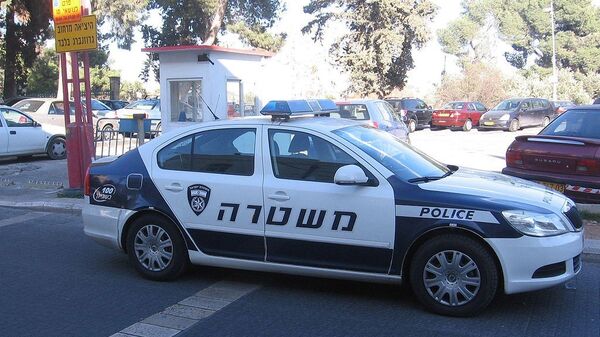In the United States, Friday marks Gun Violence Awareness Day, with people across the country asked to wear orange, a colour that symbolises the movement and that is worn by hunters to protect themselves from being shot.
According to official data, since the beginning of the year, gun violence has claimed the lives of more than 17 thousand people across the US, including over 10 thousand suicides. Over 12 thousand others have been wounded.
But the United States is not alone. Research conducted in 2018 in 195 countries found that 250 thousand people have lost their lives due to gun violence that year, with most casualties occurring in the Western Hemisphere, in Brazil, Colombia, Mexico, Venezuela, Guatemala and the US. Israel was not one of them.
Israel Won't Face America's Gun Problem
Although in recent years the country has been facing an illicit arms problem, mostly felt in Arab towns and neighbourhoods, the legal weapons in Israel are tightly controlled and carefully tracked by the state.
Unlike the US, where weapons are largely available to the general public in many states, Tel Aviv has a long list of criteria one should meet before getting a license. These include not only a proven knowledge of Hebrew, as well as medical and psychological examinations performed on a yearly basis, but also a lot of training.
Guns Used for Protection, not Murder
Since 2005, Max, an IDF officer, whose full name cannot be disclosed for security reasons, has been training hundreds of Israelis, who come to his shooting centre in the south of the country to improve and polish their skills.
Coming from all walks of life, various cities and a variety of ages, he says they all come with only one intention – to learn to protect themselves and people around them in the event of a terrorist attack.
"If you look at the recent terrorist attacks carried out by individuals, you will see that most of them have been thwarted thanks to the quick reaction of armed civilians, who happened to be present at the scene, not the security forces."
Given the fact that Israel's security has been fragile over the past five years, the amount of those applying for firearm licenses has been on the rise, says Max.
Such was the case in 2015, with the eruption of the so-called lone-wolf intifada, where ordinary Palestinians, at times not even known to Israel's security forces, started waging attacks against Israel's civilian and military targets. Back then, the Ministry of Homeland Security that handles firearm licenses and that typically gets about a hundred applications a day started receiving thousands.
Another spike occurred in 2017, when Israel decided to put metal detectors at the entrance of Jerusalem's Old City's holy compound, prompting another wave of violence against Israelis.
A year later, tensions with the Palestinians led then-minister of homeland security Gilad Erdan to introduce a reform that removed many of the restrictions limiting those who wanted to obtain weapons, making them accessible to about 600,000 potential applicants or about 1 in every 15 Israelis.
"In such instances, the state wants to protect its citizens and tends to loosen the criteria to obtain arms. That automatically leads to an increase in the amount of people looking to obtain weapons," explained Max.
But instead of boosting Israelis' confidence, the reform created an opposite effect and has been lambasted by the country's mass media, that revealed that out of 150 thousand Israelis who had an official license in 2018, more than 2,300 were deemed "dangerous for themselves and their surroundings," the highest number since 2013.
However, Max dismissed the "relatively low numbers" and said Israel's citizens had nothing to worry about.
"There have been cases when people obtained weapons but when they came in for training, we spotted that something was off about them. Sometimes it is a person, who comes in with a picture of a person he doesn't like. At other times, it is somebody who smells of alcohol or just a person who can barely shoot because his hands are shaking. Once we notice that something is wrong, it only takes one phone call to revoke their license."
According to Israeli government statistics, about 40 percent of applications for gun permits are denied. Few firearms are confiscated after the official license has been given.


